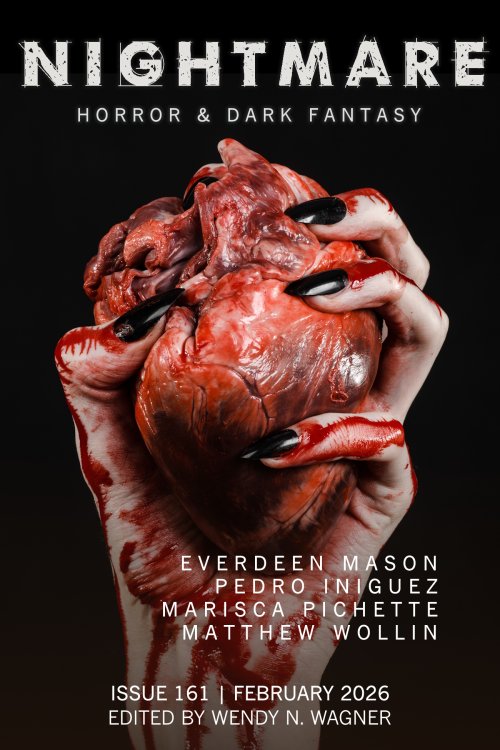I wanted to start off by asking about the Karabastı; were there any tweaks to a real-life legend, or is this pretty accurate? What drew you to the Karabastı to begin with?
I really wanted to write a story with a creature that wasn’t perhaps as commonly heard of as all the standard (but no less beloved) monsters, so I started with a little research. I’m originally Turkish and Iranian but I didn’t really grow up with stories about any demons from my side of the world. It was kind of a delight and surprise to find this family of demons that had Turkic origins, especially one that could be related to a universal one—a sort of cousin to sleep paralysis demons in a way. Karabastı translates to “dark steps,” so it’s something dark and malevolent pushing down on you in your most vulnerable state. I wanted to play with that feeling and how it could manifest at nighttime and daytime. I couldn’t speak on the “real life” legend because tracing folklore is not a straight line, but I think I like my version of her.
Most of the sensory and descriptive elements are reserved for the Karabastı, while the waking parts are often “bland” and “grey.” This extends to the sentence structure, where there are more commas and long sentences and, in general, energy present. This is especially clear in the final dream section. What was your approach for encapsulating these differing energy levels, and what did you focus on when writing each half of this story?
I felt like to the rest of this community, the demon would represent death and destruction and fear and all that comes in bright, technicolor signs on permanent caps lock. Everything fun and curious and intriguing is a poisonous frog because the most dangerous have the brightest colors. But how would that be a turn off to someone who is pretty much in a state of living death already? I wanted to highlight the temptation to take the path of the unknown for the girl, but not because she’s reckless. It’s because she has seen the options, and this is her choice and her will. Her eyes are literally open when she decides.
There’s something to be said about desire, especially forbidden desire when the world around you insists that you belong to something else already. That’s why it’s so cathartic when our main character reaches out and grabs the Karabastı and pulls herself away from social expectations, as a lot of young, queer people (especially women) have to do. If there are any readers who are struggling with a situation similar to what our main character is going through, what do you hope they take away from “Karabasan?”
I would be beyond honored if any readers felt the strength or inspiration to take anything from my words with them on their journeys. I would tell them there will always be creatives who will share their feelings and express them (most of them better than I could) and there will always be a community through art.
What can we look forward to seeing from you in the future?
I hope to bring a few more of my homeland demons to the light, and since my Turkish mother will nag me about it, possibly finish the novel about some of their stories as well.









